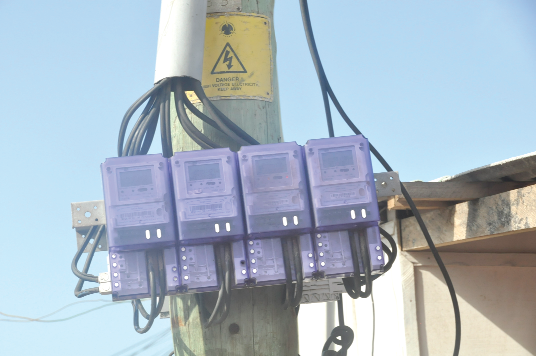Energy think tank, African Center for Energy Policy (ACEP) says electricity tariffs in Ghana have experienced a staggering increase of about 100% in the past nine months.
ACEP believes that the power sector continues to pose a major threat to Ghana's economic sustainability. The sector's reform has been recognized as crucial to the country's economic recovery under the International Monetary Fund (IMF) program.
ACEP's recent report highlights the poor performance of the Cash Waterfall Mechanism (CWM) in March and April 2023, meeting only 11% of the revenue requirement.
The report attributes this poor performance to ECG's discretionary spending and inadequate accounting.
The Centre claims, "The Cash Waterfall Mechanism recorded its poorest performance in March and April 2023, meeting only 11% of the revenue requirement."
In addition, ACEP raises concerns about the sustainability of the power sector due to questionable decisions that further threaten its stability. One such decision highlighted by ACEP is ECG's recent extension of the operation of emergency power plants procured during the "Dumsor" era in 2015, succumbing to political pressure.
ACEP argues that deploying the most efficient power plants in Ghana is crucial for long-term sustainability and cost-effectiveness.
The report stated, "Recently, ECG yielded to political pressure and extended the operation of emergency power plants procured during the 'Dumsor' (power crisis) era in 2015."
ACEP also expressed disappointment in the approval of this extension by the technical and commercial regulators of the power sector, namely the Energy Commission and the Public Utilities Regulatory Commission (PURC).
The report emphasizes that the renewed AKSA power plants are old plants that were overpaid for by Ghanaians. ACEP estimates the total investment cost of the projects to be around $60 million, significantly less than the approximately $700 million earned by the company over the past six years.
ACEP argues, "The AKSA plants are old Watsila engines assembled by a private developer during the Dumsor period in 2015, with units from various countries, including Cyprus and Sri Lanka procured at the cost between $1.2 million and $2 million per unit."
Furthermore, ACEP questions the justification for assigning a capital recovery charge of about $750 million to these over 20-year-old plants for the next 15 years. The report criticizes the government and ECG for planning to rely on inefficient and unreliable plants instead of investing in modern, state-of-the-art equipment.
ACEP states, "For a power system struggling to recover from persistent power interruptions, planning to build long-term efficient power systems is a fiducial duty of the government and its agencies."
It emphasized the need for transparency, accountability, and efficient decision-making in the power sector. The report calls for a closer examination of the inconsistencies surrounding the AKSA project and urges holding those involved accountable.
ACEP concludes, "It is imperative to scrutinize these contradictory narratives and rid the sector free from political expediency. It is crucial to hold those involved accountable and ensure efficient decision-making that aligns with the overall welfare of the Ghanaian people."
Latest Stories
-
Paris 2024: Opening ceremony showcases grandiose celebration of French culture and diversity
3 hours -
Spectacular photos from the Paris 2024 opening ceremony
4 hours -
How decline of Indian vultures led to 500,000 human deaths
4 hours -
Paris 2024: Ghana rocks ‘fabulous fugu’ at olympics opening ceremony
5 hours -
Trust Hospital faces financial strain with rising debt levels – Auditor-General’s report
5 hours -
Electrochem lease: Allocate portions of land to Songor people – Resident demand
5 hours -
82 widows receive financial aid from Chayil Foundation
6 hours -
The silent struggles: Female journalists grapple with Ghana’s high cost of living
6 hours -
BoG yet to make any payment to Service Ghana Auto Group
6 hours -
‘Crushed Young’: The Multimedia Group, JL Properties surprise accident victim’s family with fully-furnished apartment
6 hours -
Asante Kotoko needs structure that would outlive any administration – Opoku Nti
7 hours -
JoyNews exposé on Customs officials demanding bribes airs on July 29
7 hours -
JoyNews Impact Maker Awardee ships first consignment of honey from Kwahu Afram Plains
8 hours -
Joint committee under fire over report on salt mining lease granted Electrochem
8 hours -
Life Lounge with Edem Knight-Tay: Don’t be beaten the third time
9 hours

